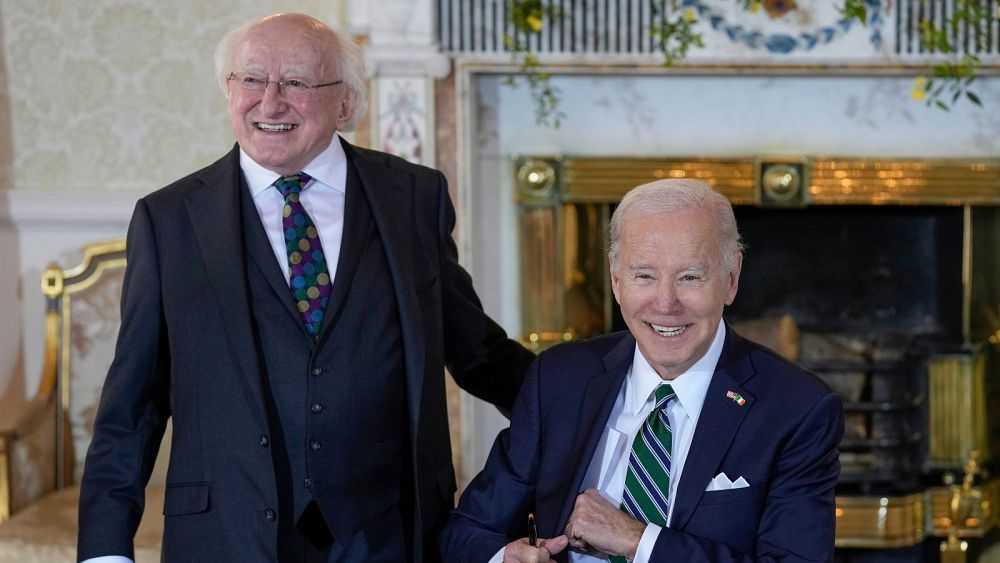
Heated debate as country re-examines its military approach in the wake of the war in Ukraine
The forum, which begins on Thursday and will meet at venues across Ireland for a week, has been launched to consider “Ireland’s policy position of military neutrality and an exploration of definitions, options, and implications of the policy of neutrality.”
While the set-up of such a forum isn’t identical, Ireland previously organised citizens’ assemblies to debate major changes such as ending an abortion ban and same-sex marriage.
As things stand, Ireland is able to provide non-lethal assistance in circumstances such as the war in Ukraine.
However, it requires a mandatory resolution from the United Nations Security Council, a formal decision from the Irish government and approval by a resolution of Dáil Éireann, the lower house of parliament, to deploy more than 12 soldiers to a combat zone.
Speaking on Wednesday to the Committee on European Union Affairs in the Irish parliament, Dr Scott Fitzsimmons, senior lecturer in international relations at the University of Limerick, called for this triple-lock to be removed.
He pointed out the permanent members of the UN Security Council “include countries that pose potent threats to ourselves and to the rest of the EU. These countries should not be allowed to exercise a veto over our ability to defend Europe”.
He also criticised Ireland’s current approach on military neutrality.
“Ireland operates on the expectation that our EU allies, as well as the UK, will assist us in the event that we are attacked by an external aggressor. However, we will not reciprocate,” he said.
“This isn’t neutrality, this is free-riding off of other countries who will sacrifice for us even if we will not commit to do the same for them.”
At the weekend, the country’s president, Michael D Higgins, who holds a mostly ceremonial role, warned ministers were “playing with fire”.
In an interview with the Business Post newspaper, he described Ireland’s policy as being “one of positive neutrality, and it can be defined very simply as Ireland’s right to belong to any group that it chooses in relation to non-militaristic international policy”, he said. “If you interfere with that, there’s no difference between you and Lithuania and Latvia.”
Both those countries are NATO members. “That’s the fire that people are playing with,” he said.
Defending the review afterwards, the deputy head of government, Tánaiste Micheál Martin, said the forum was “not a binary discussion on neutrality and was never intended to be”, and that the government “do not intend to change Ireland’s policy of military neutrality.”
He later denied that ruling out a change to neutrality was a climbdown.
Neutrality in Ireland as official policy remains popular. In a recent Irish Times poll, asked whether they support “current model of military neutrality”, which the government defines as being outside of military alliances, 61% said yes.
The war in Ukraine has prompted other countries to consider their own foreign policy. Finland became NATO’s 31st member in April, while Sweden is also poised to join.